
Introduction: The Evolving Covid-19 Landscape in Singapore
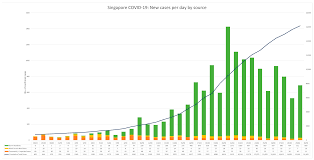
The Covid-19 pandemic has profoundly impacted countries worldwide, and Singapore is no exception. As of now, Singapore continues to closely monitor the situation, which has evolved significantly since the onset of the outbreak. The government has implemented a range of measures aimed at curbing transmission and safeguarding public health. This proactive stance underscores the importance of understanding the current state of Covid-19 cases in the region.
Recent data reveal fluctuations in the number of reported cases, prompting health authorities to remain vigilant. The landscape of Covid-19 in Singapore is shaped by various factors, including vaccination rates, the emergence of new variants, and the public’s adherence to health advisories. Vaccination campaigns have been a cornerstone of Singapore’s strategy, facilitating the administration of vaccines to a large percentage of the population. By staying informed about these developments, individuals can make better decisions regarding their health and safety.
The government, along with healthcare professionals, continuously evaluates the effectiveness of existing public health measures while prioritizing the well-being of the populace. Measures such as safe distancing, mask mandates, and travel restrictions are subject to updates based on the current epidemiological situation. Consequently, public compliance and engagement play a significant role in shaping the effectiveness of these strategies.
Ultimately, remaining informed about the evolving Covid-19 landscape in Singapore is essential, as it allows citizens to navigate challenges effectively. By keeping track of case updates, vaccination progress, and health guidelines, individuals contribute to the broader public health framework designed to curb the ongoing crisis. A thorough understanding of these dynamics not only promotes personal safety but also fosters collective resilience in facing the ongoing pandemic.
Current Statistics: Latest Covid-19 Cases in Singapore
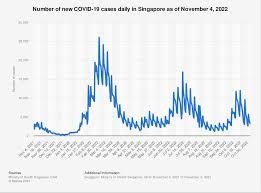
As of the latest updates, Singapore has been actively monitoring and reporting its Covid-19 statistics. The number of daily new cases remains a critical indicator of the pandemic’s status within the country. In recent weeks, Singapore has observed fluctuations in daily new cases, with an average of approximately 150 to 300 reported each day. This trend highlights the ongoing challenges in managing the virus, as new variants continue to emerge globally.
Currently, the number of active cases stands around 2,000, reflecting individuals who are still undergoing treatment or isolation due to Covid-19. Among these, a proportion of patients are classified as serious cases, requiring hospitalization and specialized care. Moreover, the recovery rate has been encouraging, with approximately 95% of infected individuals recovering adequately after treatment, which speaks to the effectiveness of Singapore’s healthcare system.
Fatalities attributed to Covid-19 have been relatively low in comparison to the number of confirmed cases. Recent reports indicate that the death toll remains under control, with an average of 1 to 2 deaths reported per week. This statistic is vital, as it demonstrates the effectiveness of vaccination campaigns and public health measures put in place by the Singaporean government. Comparing these numbers with figures from previous months reveals a gradual improvement in case management, although there are still instances of sudden spikes, often correlating with increased social interactions or travel.
To enhance understanding of these numbers, visual aids such as charts and graphs can be implemented in government reports. These tools not only make the data more accessible but also help the public grasp the dynamics of Covid-19 spread and the ongoing response efforts. Overall, the current statistics indicate a complex but manageable situation, necessitating continued vigilance and adherence to health protocols to maintain public safety.
Vaccination Drive: Progress and Coverage in Singapore for Covid-19
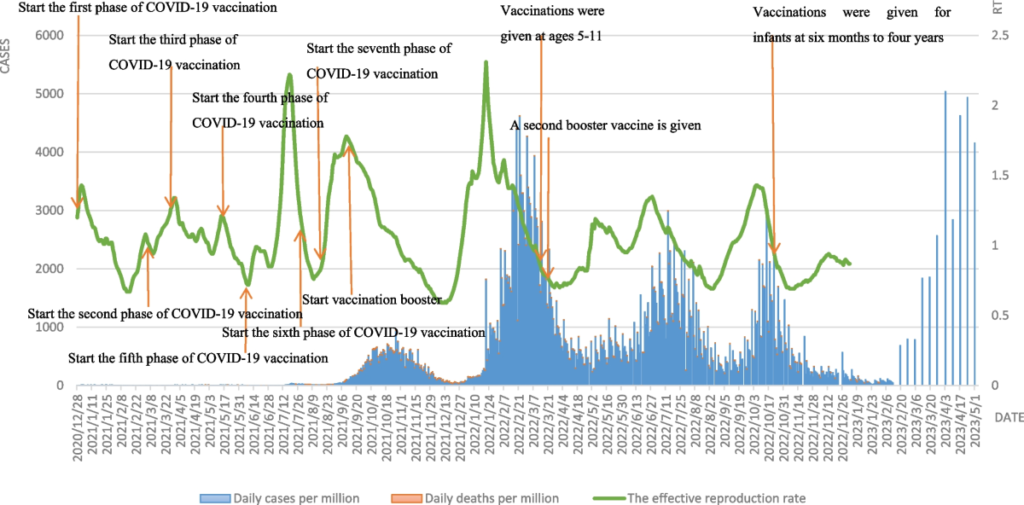
Singapore’s vaccination drive has been a critical component of its strategy to combat Covid-19. As of October 2023, approximately 93% of the eligible population has received at least one dose of a Covid-19 vaccine, illustrating the government’s commitment to achieving high vaccination coverage. This impressive statistic emphasizes the efficiency and effectiveness of the vaccination efforts in the country. The core vaccines being administered include the Pfizer-BioNTech, Moderna, and Sinovac vaccines, each authorized by the Health Sciences Authority (HSA) to ensure safety and efficacy.
The rollout strategy has been meticulously planned, with the government utilizing an array of venues such as hospitals, clinics, and community vaccination centres to ensure accessibility. Additionally, mobile vaccination units have also been deployed to reach individuals in isolated areas. This multi-faceted approach has facilitated a seamless vaccination experience for the public. Moreover, the introduction of online booking systems has allowed individuals to schedule appointments conveniently, thereby enhancing participation rates in the vaccination programs.
As the Covid-19 pandemic evolves, booster shots have become an integral part of the vaccination strategy. The government has initiated booster vaccination campaigns, ensuring that individuals have optimal protection against emerging variants. Public response has been largely positive, with many recognizing the significance of booster doses in maintaining immunity. The Singaporean government continues to promote the importance of vaccination through various outreach programs, reinforcing the collective responsibility to safeguard public health.
Furthermore, efforts are being made to improve vaccination coverage among specific demographics, particularly among children and the elderly. Strategies include educational campaigns to address concerns and misinformation regarding vaccines. Overall, Singapore’s vaccination drive has significantly contributed to curbing the spread of Covid-19, showcasing the efficacy of robust public health initiatives.
Variants of Concern: Understanding The Impact of Covid-19

The ongoing Covid-19 pandemic has seen the emergence of several variants that significantly impact infection rates and public health responses worldwide. In Singapore, variants of concern have played a crucial role in shaping the country’s approach to managing the virus. Key variants, such as Alpha, Beta, Delta, and Omicron, have been identified, each exhibiting distinct characteristics in terms of transmissibility and severity.
The Alpha variant, first detected in the United Kingdom, was noted for its increased transmissibility compared to earlier strains. This led to a surge in cases that prompted Singaporean healthcare authorities to implement stricter measures to curb its spread. Similarly, the Delta variant, which emerged in India, proved to be even more contagious, resulting in considerable pressure on healthcare systems globally, including Singapore’s. Public health officials had to adapt their testing, contact tracing, and vaccination strategies in response to the heightened transmissibility of such variants.
Another notable variant is Omicron, which was first identified in South Africa. Although initial data suggested that Omicron might lead to milder disease, its ability to spread rapidly resulted in significant case numbers within a short period. This variance in disease severity has complicated responses, as health authorities balance the need for societal normalcy with the risk of overwhelming healthcare resources.
Globally, variants continue to evolve, presenting ongoing challenges to pandemic management. For Singapore, the emergence of these variants necessitates a flexible strategy, employing a range of public health measures, including refined vaccination campaigns, ongoing testing protocols, and community engagement. The situation remains dynamic, and constant monitoring of variants is essential to ensure the effectiveness of the country’s response to Covid-19.
Public Health Measures: Current Restrictions and Guidelines for Covid-19
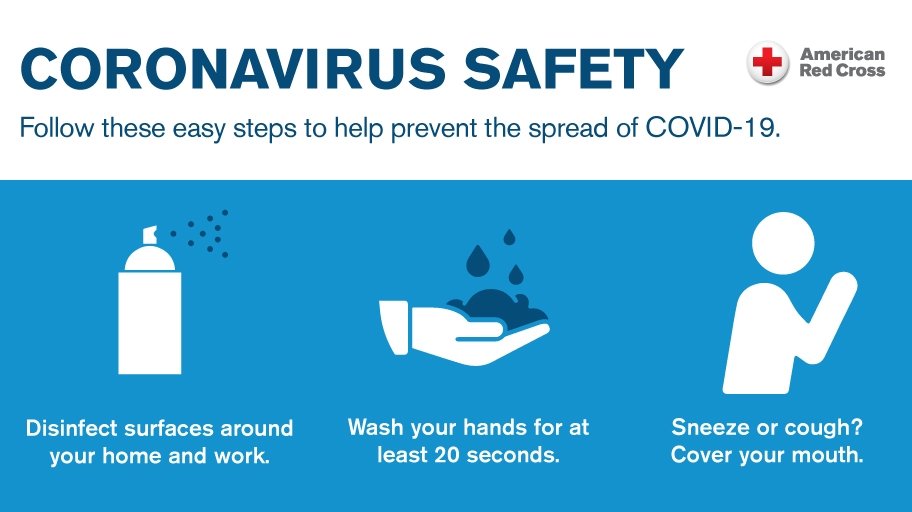
As Singapore continues to navigate the challenges presented by the Covid-19 pandemic, the government has implemented a series of public health measures aimed at curbing the spread of the virus while allowing for a gradual return to normalcy. These measures encompass a range of guidelines, including social distancing protocols, mask mandates, and capacity limits for various public venues.
Social distancing remains a cornerstone of Singapore’s approach to managing the pandemic. Individuals are encouraged to maintain a safe distance of at least one meter from others in public spaces. This practice is particularly emphasized in high-density areas such as public transport and shopping malls, where the risk of transmission is heightened. By fostering personal space, these measures aim to reduce potential interactions that could lead to virus spread.
Furthermore, the wearing of face masks is mandatory in most indoor settings, including workplaces and public transport. This requirement reflects the collective understanding that masks can significantly reduce the transmission of respiratory droplets, which are a primary means of the virus’s spread. Compliance with this mandate has been high, and enforcement measures are in place to ensure adherence, contributing positively to the overall public health landscape.
Capacity limits have also been instituted in venues such as restaurants, retail stores, and places of worship, to ensure that crowd sizes remain manageable and conducive to safety. These limits are regularly reviewed and adjusted based on the prevailing epidemiological situation, allowing for flexibility in response to fluctuating infection rates. Public events are subject to specific restrictions, with organizers required to submit event plans for approval to further ensure public safety.
As new variants of the virus emerge and vaccination coverage increases, the Singaporean government continues to adapt these public health measures, balancing the need for safety with the desire to reopen society. Staying informed about these evolving guidelines is essential for all residents, ensuring that precautions are observed for the health and safety of the community.
Economic Impact: How Covid-19 is Affecting Singapore’s Economy
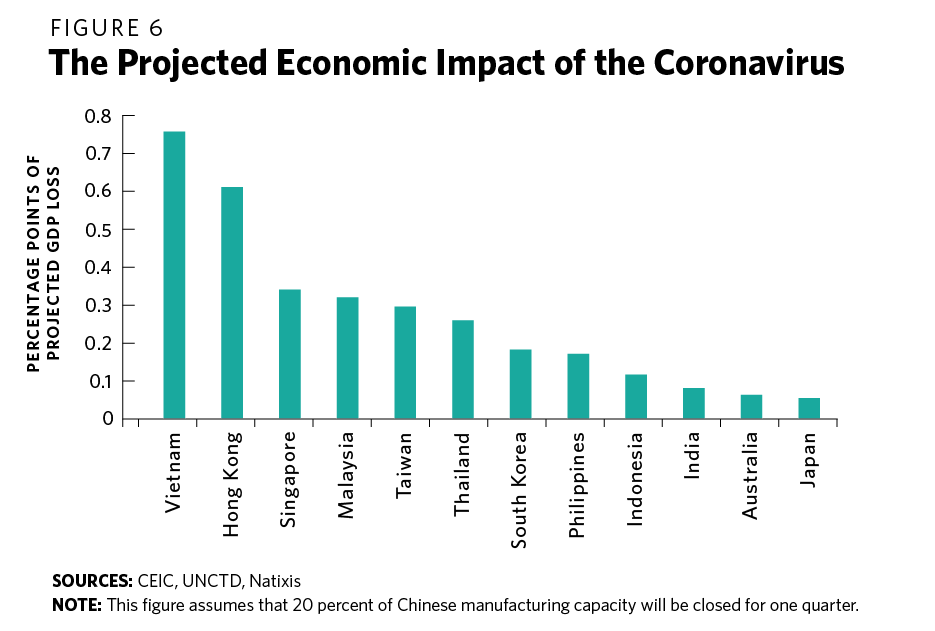
The economic impact of Covid-19 on Singapore has been profound, affecting various sectors critically. One of the most severely hit areas is tourism, which is a significant contributor to Singapore’s GDP. With international travel restrictions and the fear of the virus, tourist arrivals plummeted, leading to a dramatic decline in revenue for hotels, attractions, and restaurants. The hospitality sector, traditionally bustling, came to a standstill as occupancy rates dropped to record lows.
In addition to tourism, the retail sector faced substantial challenges. Physical distancing measures and temporary closures of non-essential businesses resulted in decreased foot traffic in shopping districts. Many retailers had to pivot quickly, enhancing their online presence to maintain customer engagement. Despite these adjustments, overall retail sales saw a notable decline, further stressing the economy.
Recognizing the challenges posed by the pandemic, the Singaporean government implemented a series of measures to mitigate the economic fallout. Initiatives such as the Fortitude Budget and Jobs Support Scheme were introduced to provide financial assistance to affected individuals and businesses. The government also supported sectors like aviation and tourism through targeted stimulus packages. These interventions aimed at preserving jobs and enabling businesses to navigate through an unprecedented downturn.
In response to the crisis, Singapore has focused on innovation and adaptability; companies are increasingly turning to digital solutions to sustain operations amidst ongoing uncertainties. Enhanced digital infrastructure and government support for technology adoption are driving a shift in how businesses operate, which may shape the future of Singapore’s economy once recovery takes hold.
As the economy progresses towards recovery, it is crucial for ongoing evaluations of the Covid-19 situation, alongside continued government support, to ensure sustainable growth in the post-pandemic landscape.
Mental Health During Covid-19 : Resources and Support
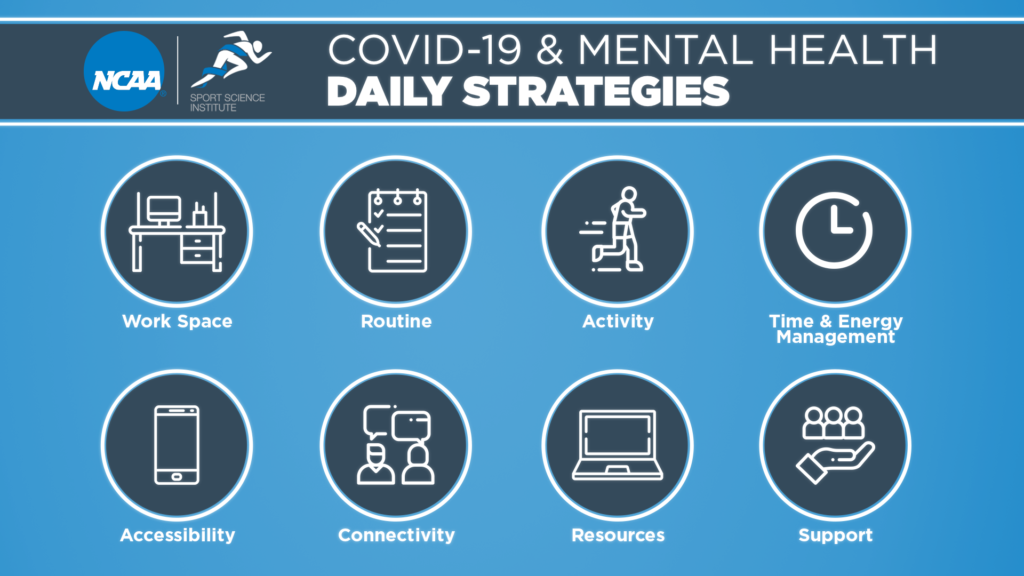
The Covid-19 pandemic has significantly impacted mental health across the globe, with Singapore not being an exception. Individuals have faced heightened levels of anxiety, depression, and stress resulting from prolonged isolation, uncertainty about employment, and concern for the health of loved ones. The disruption of daily routines and social interactions has further exacerbated these challenges, highlighting the importance of addressing and prioritizing mental wellbeing.
In response to these pressing issues, various resources and support systems have emerged to help individuals navigate their mental health struggles during these uncertain times. The government, alongside non-profit organizations and mental health professionals, has been proactive in offering assistance. For instance, the Singapore Mental Health Centre provides a range of counseling services tailored to meet the needs of those dealing with mental health issues exacerbated by the pandemic. Availability of online consultations ensures that individuals can seek help from the safety and comfort of their homes.
Moreover, helplines such as the Samaritans of Singapore offer immediate emotional support to those in crisis. Accessible 24/7, these services ensure that individuals can reach out for help at any time, reinforcing the message that one is not alone in facing mental challenges brought about by the pandemic. Additionally, community initiatives have played a crucial role in fostering social interaction and support among residents. Initiatives like mental health awareness campaigns aim to reduce stigma associated with seeking help, thereby encouraging individuals to prioritize their mental health.
It is essential for individuals to recognize the significance of mental wellness during these times. By utilizing available resources, individuals can take proactive steps to improve their mental health and wellbeing amidst the ongoing challenges posed by the Covid-19 pandemic.
Community Engagement: The Role of Citizens in Fighting Covid-19
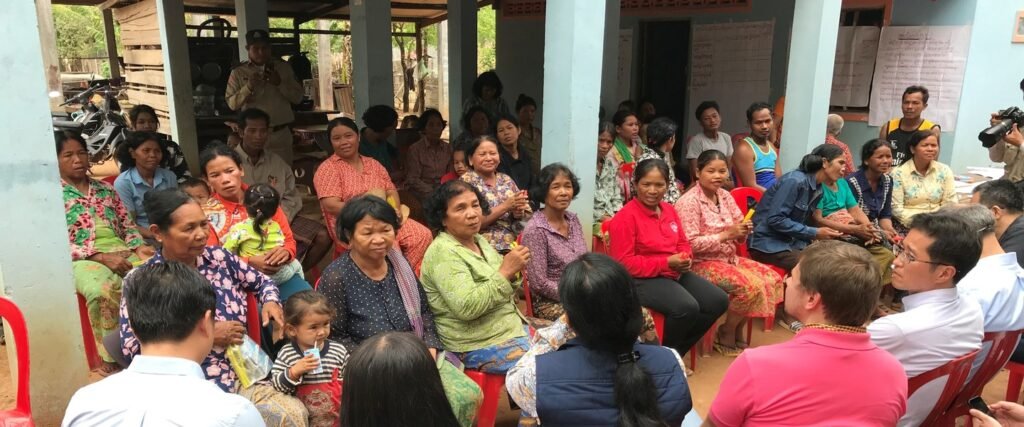
The Covid-19 pandemic has underscored the critical role of community engagement in combating public health crises. In Singapore, citizens have united in various initiatives aimed at supporting healthcare workers, increasing awareness, and assisting those in need. This collaborative spirit has been pivotal in fostering resilience and solidarity, making citizens an indispensable part of the fight against the virus.
One notable initiative involved local volunteers forming groups to provide essential support to healthcare workers facing unprecedented challenges. These groups organized meals and care packages for frontline workers, demonstrating appreciation for their sacrifices. Moreover, community members have taken it upon themselves to sew and distribute masks, thereby addressing the acute shortage of personal protective equipment during critical phases of the outbreak. Such grassroots efforts not only aided healthcare personnel but also inspired a collective sense of responsibility among citizens.
In addition to physical support, awareness campaigns spearheaded by local organizations have educated the public about safety measures. Citizens actively engaged in disseminating accurate information through various channels, particularly social media platforms. These campaigns have proven effective in countering misinformation and promoting public adherence to health advisories such as mask-wearing, social distancing, and vaccination. The impact of these efforts has been amplified by collaboration with governmental bodies, showcasing a strong partnership for the common good.
Furthermore, community engagement has extended to vulnerable populations, such as the elderly and low-income families. Initiatives like grocery deliveries and mental health support have emerged, addressing specific needs exacerbated by the pandemic. Such actions exemplify not only empathy but also a recognition of the interconnectedness of society in challenging times.
Ultimately, the role of citizens in Singapore’s battle against Covid-19 underscores the importance of community engagement. Through their initiatives, citizens have proven that collective action can make a substantial difference in navigating challenging circumstances, setting a powerful example for other nations grappling with similar challenges.
Looking Ahead: Future Projections and What to Expect

As Singapore navigates the ongoing challenges posed by the Covid-19 pandemic, future projections indicate a cautious yet hopeful path. Experts suggest that case numbers may stabilize, particularly as vaccination efforts continue to gain momentum. With a significant percentage of the population already vaccinated, the incidence of severe cases is expected to decrease, alleviating pressure on healthcare facilities. However, the emergence of new variants remains a potential threat, necessitating vigilance to monitor their impact on transmission rates and vaccine efficacy.
The progress in vaccinations also implies a transition towards a new normal. The government has been outlining strategies to maintain a balance between public health and economic recovery. This includes carefully phased easing of restrictions while ensuring that any increase in Covid-19 cases can be effectively managed. Public health measures, such as contact tracing, remain essential tools in controlling potential outbreaks. As Singapore moves forward, communication about public health guidelines will be critical in fostering community cooperation and adherence to safety practices.
In tandem with vaccination campaigns, the government is investing in research and development to enhance its response capabilities against the virus. This encompasses not only healthcare readiness but also the exploration of treatments and therapies that could mitigate the effect of Covid-19. The outlook for future health policies involves a framework that allows for rapid adjustments based on emerging data and evolving circumstances.
While a gradual return to normalcy is anticipated, the importance of continuous vigilance cannot be overstated. Ongoing education about Covid-19 prevention, such as wearing masks in crowded areas and adhering to hygiene protocols, will be vital as societal activities resume. Adapting to a post-pandemic reality entails understanding that Covid-19 might remain an endemic threat, requiring an ongoing commitment to health and safety measures. In conclusion, the path ahead is shaped by a combination of forward-thinking strategies, unwavering public compliance, and innovative health responses to sustain Singapore’s resilience against Covid-19.
